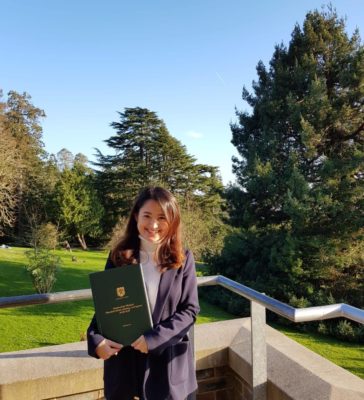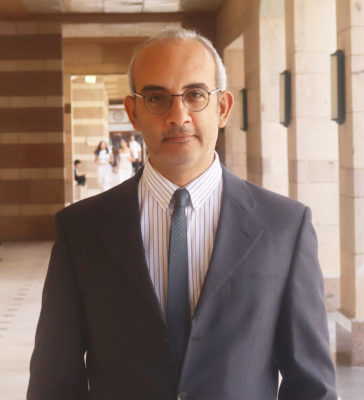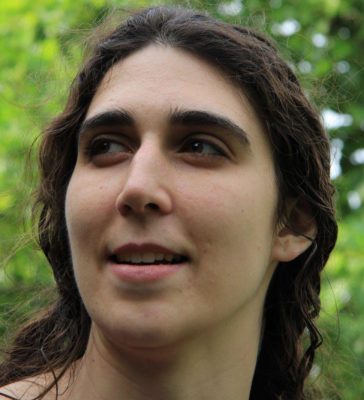
Manami Goto
Current Employer/Organisation Name
Tokyo University of Foreign Studies/ University of Exeter
What have you been doing since leaving Exeter, and what are you doing now?
My PhD degree was awarded on March 25, 2019, and I started my postdoctoral position at the Research Institute for Languages and Cultures of Asia and Africa at Tokyo University of Foreign Studies in Japan from April 1, 2019.
Why did you choose this career? And what do you enjoy most about your work?
I was looking for a research position which enables me to work on my publications and provides me with freedom and financial support to conduct further research in the field. My current three-year postdoctoral position in Japan was exactly what I wished to have for my next career after completing my PhD and I was also hoping to be back in Japan for a few years to do networking in order to know researchers who are working in the related fields in Japan.
Please tell us if you were a member of any societies, groups or sports clubs?
I was and still am a member of the Centres for Gulf Studies as well as for Islamic Archaeology at the Institute of Arab and Islamic Studies.
What did you enjoy most about your programme and what was the biggest highlight?
I think I enjoyed meeting with other students and scholars who are working on the Arab and Islamic Studies but from different perspectives. Especially getting through tough times during my writing-up stage with other PhD students has mentally helped me a lot.
What did you enjoy most about studying here?
Being able to study on campus where it is surrounded by beautiful nature was very important for me as a PhD life sometimes could be very stressful. In fact, I needed to see some green in order to relax and refresh my mind. Exeter is also very quiet, and I believe it is the best place to study!
Why did you choose to study at Exeter?
The Institute of Arab and Islamic Studies has the oldest Gulf Research Centre in the UK, and the Centre has one of the world’s largest Gulf collections. As a Gulf specialist, it was very attractive to be in such an environment where I can meet other Gulf scholars and easily have access to various scholarly items on campus.
What skills and experiences have been most useful for your career?
I think gaining skills and experiences that make you stand out from other scholars is the key. In my case, I learned Arabic and Persian and have spent almost 5 years in the Gulf region before completing my PhD. I have also interviewed more than 300 local women for my PhD research. I think both language skills including communication skills and the field research experiences in the Gulf attests to my strength as a researcher in the field.
What advice would you give to a current student who wishes to pursue your career?
Gain as many skills and experiences as possible, which will lead you to the career you want. Be specific and special in your field and think about what makes you different and outstanding!
What are your plans for the future?
I am planning to turn my PhD thesis into a monograph and publish at least three journal articles during my postdoctoral period in order to get a job in academia after this position.

